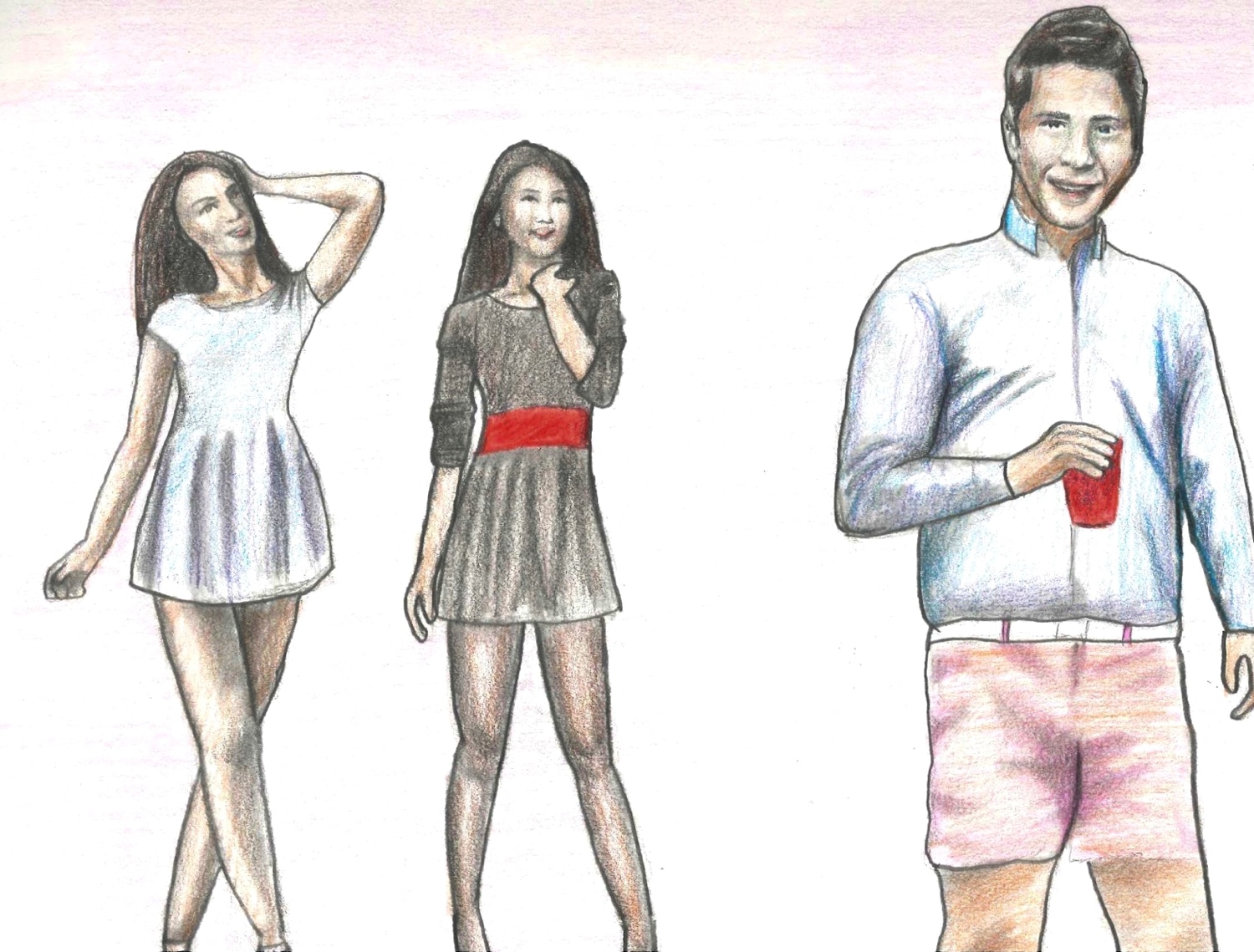“The Bachelor” finale aired March 5, and as a proud member of Bachelor Nation, I had a stronger reaction than most of the other 7.8 million people who also watched the finale. Let me tell you, I did everything in my power not to crack my computer screen. The Bachelor — Arie Luyendyk, Jr. — proposed to Becca Kufrin in the finale and then changed his mind and dumped her for runner-up Lauren Burnham. The finale received a lot of buzz –– from the SNL Cold Open to many late night discussions on Oxy’s campus.
The next day, I found myself talking to people I’ve never talked to in the Marketplace about how Luyendyk dumped kick-ass Kufrin for the more reserved Burnham. Through these conversations, it became clear that ABC may frame “The Bachelor” as a romantic opportunity for one man to find a wife, but what he’s really doing is hooking up with 25 women before picking the one he likes hooking up with the most.
When I was 12, my mom warned me that “The Bachelor” is not an accurate account of what real relationships are like. However, when I got to college, I saw a lot more similarities than I — and probably she — would have hoped. College women (and, to a lesser extent, guys) are able to connect to the show because it explores the problems shared with our college hookup culture today. It communicates how our college hookup culture is broken; even though the hookup culture is not inherently bad, it becomes a problem when it impedes the freedom it was supposed to create for women in the first place.
Occidental Sociology Professor Lisa Wade, who wrote “American Hookup: The New Culture of Sex on Campus,” said that most college relationships are formed through a series of hookups. Starting in the 1970s, women wanted to be taken more seriously in the workforce, and that meant taking on more masculine characteristics –– one of which was to have more casual sex, as men did. Since men hold most of the power in society, initiating hooks up was a way for women to take control in an unequal social system. And although many women my age choose to embrace hookup culture, many of my classmates find that it definitely has its challenges.
One of the challenges that the contestants on “The Bachelor” face is having to be compared to the other 24 contestants on everything from kissing to sex. This season, I applauded Jacqueline Trumbull when she decided she wanted out. She opted out of the show because she decided to pursue her Ph.D. in Clinical Psychology in New York instead of marrying Luyendyk and moving to Arizona. She could have settled for marriage, but she took a risk and chose herself over a guy.
Still, instead of exiting the show with pride, Trumbull left in tears. That fear that she had of not meeting another guy that would give her the same kind of attention is also present in many who navigate college hookup culture. In fact, the short-term gratification a person receives from hooking up is extremely addictive. A 2010 study from Binghamton University professor of Evolutionary Anthropology and Health Justin R. Garcia suggests that uncommitted sexual activity can stimulate the same receptors as addiction to alcohol or cocaine. Yes, hooking up is fun and can help boost anyone’s ego. However, it shouldn’t compensate for a lack of self-esteem.
“The Bachelor” also alludes to what happens when someone puts the person with whom they’re hooking up on a pedestal. Many women who’ve participated in college hookup culture have hooked up with a Luyendyk, someone who seems successful, handsome and well-traveled. But, in actuality, that person lacks personality and has issues like everyone else.
On “The Bachelor” and “The Bachelorette” — as well as in college hookup culture — competing for a single person’s attention increases that person’s value. Even if I don’t have to fight with 25 others over a guy at an Oxy party, I definitely can relate to the show’s competitive nature. Nevertheless, the competitive nature that comes with hookup culture is futile, because the point of hookup culture as a whole is not to put others down but to create an environment of sex positivity.
“The Bachelor” made $86 million in advertising revenue last year, so people (myself included) are obviously hooked on a hookup competition show. However, there is a larger discussion beyond the abundance of red gowns and the spontaneous trips to Tuscany. Despite the show’s prominence, college women should not follow the contestants’ lead. The only way we’re going to be able to reform our current hookup culture is if we, as women, understand that a hookup doesn’t determine whether or not we’ll live happily ever after. By participating in hookup culture, women don’t need to pick a career path over a partner, because we’re lucky to live at a time when women can have casual sex and get good grades, too.
Esme Epstein is an undeclared first year. She can be reached at eepstein@oxy.edu.
![]()




































